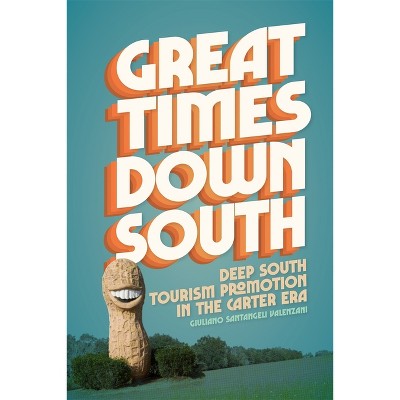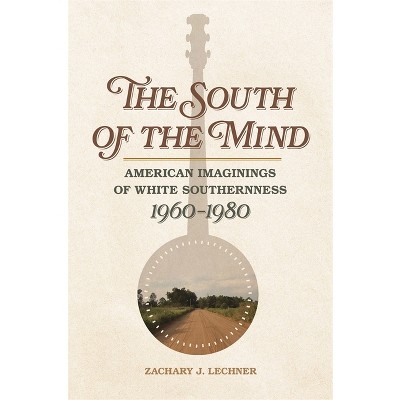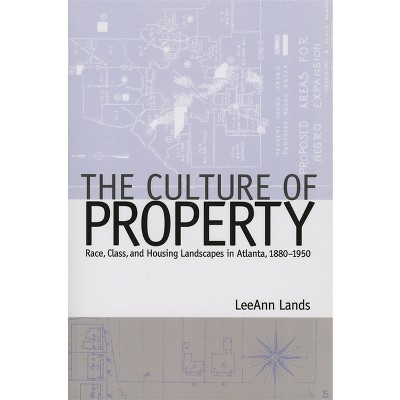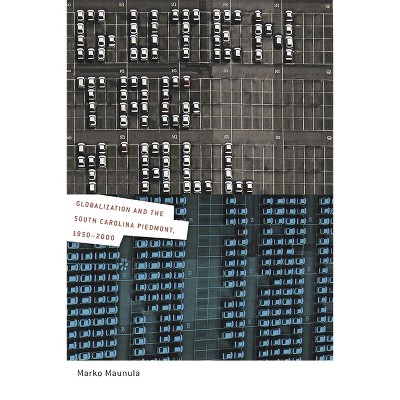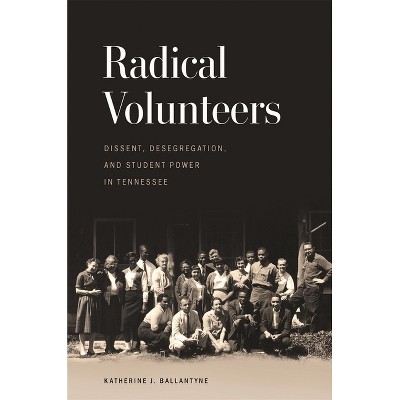Who Gets a Childhood? - (Politics and Culture in the Twentieth-Century South) by William S Bush (Paperback)

About this item
Highlights
- Using Texas as a case study for understanding change in the American juvenile justice system over the past century, William S. Bush tells the story of three cycles of scandal, reform, and retrenchment, each of which played out in ways that tended to extend the privileges of a protected childhood to white middle- and upper-class youth, while denying those protections to blacks, Latinos, and poor whites.
- About the Author: WILLIAM S. BUSH is a professor of history at Texas A&M University-San Antonio.
- 276 Pages
- History, United States
- Series Name: Politics and Culture in the Twentieth-Century South
Description
About the Book
Using Texas as a case study for understanding change in the American juvenile justice system over the past century, William S. Bush tells the story of three cycles of scandal, reform, and retrenchment, each of which played out in ways that tended to extend the privileges of a protected childhood to white middle- and upper-class youth.Book Synopsis
Using Texas as a case study for understanding change in the American juvenile justice system over the past century, William S. Bush tells the story of three cycles of scandal, reform, and retrenchment, each of which played out in ways that tended to extend the privileges of a protected childhood to white middle- and upper-class youth, while denying those protections to blacks, Latinos, and poor whites.
On the forefront of both progressive and "get tough" reform campaigns, Texas has led national policy shifts in the treatment of delinquent youth to a surprising degree. Changes in the legal system have included the development of courts devoted exclusively to young offenders, the expanded legal application of psychological expertise, and the rise of the children's rights movement. At the same time, broader cultural ideas about adolescence have also changed. Yet Bush demonstrates that as the notion of the teenager gained currency after World War II, white, middle-class teen criminals were increasingly depicted as suffering from curable emotional disorders even as the rate of incarceration rose sharply for black, Latino, and poor teens. Bush argues that despite the struggles of reformers, child advocates, parents, and youths themselves to make juvenile justice live up to its ideal of offering young people a second chance, the story of twentieth-century juvenile justice in large part boils down to "the exclusion of poor and nonwhite youth from modern categories of childhood and adolescence."Review Quotes
Who Gets a Childhood? offers readers an opportunity to see beyond the headlines in contemporary debates about juvenile crime. Bush encourages us to question not only our ideas about the nature of juvenile criminality but also our collective biases concerning the dividing line between adolescence and adulthood.
--Deborah Blackwell "Journal of Southern History"Who Gets a Childhood? is a powerful account of juvenile injustice and an important, thought-provoking book that engages boldly, as Bush maintains, a fundamental crisis facing American society. It is worthy of close reading by all who are concerned about juvenile justice and the solutions to the growing problem of juvenile delinquency and violent crime. It will undoubtedly be of particular interest to academic experts. . . .sociologists; school psychologists; public policy experts; legal scholars; political scientists; and social, cultural, and political historians. . . .The book is certainly accessible to serious lay readers. . .and is well suited for undergraduate classes and the graduate seminar room.
--Mark Carroll "H-Net Reviews"Bush's multilayered analysis of some seven decades of Texas juvenile justice breaks new ground in a number of ways, and it should be required reading for anyone working at the intersection of race and juvenile justice in the twentieth century. The book constitutes an important contribution to a field in which local- and state-level histories are scarce--though its greatest value lies in its breadth, which extends far beyond the institution of the juvenile justice system.
--Andrew J. Diamond "Journal of American History"Combining innovative archival research, astute analysis of popular culture, and gripping prose, Who Gets a Childhood? presents a harrowing history of juvenile corrections in twentieth-century Texas. Bush reminds us what happens to young people who are denied a childhood, while demonstrating that American juvenile justice has become the New American Dilemma that urgently demands our attention.
--David S. Tanenhaus "author of Juvenile Justice in the Making"The book constitutes an important contribution to a field in which local- and state-level histories are scarce--though its greatest value lies in its breadth, which extends far beyond the institutions of the juvenile justice system.
--Andrew J. Diamond "Journal of American History"William Bush draws on a staggering amount of research to introduce a compelling cast of previously unknown characters who put Texas and the U.S. South at the center of mid-twentieth-century juvenile justice reform. Legal scholars and social and political historians will need to read and respond to this novel and intriguing study.
--Steven Schlossman "author of Transforming Juvenile Justice: Reform Ideals and Institutional Realities, 1825-1920"An immensely informative account of the complexities of reform and repression within the training schools of a state known for its tough penal culture.
--American Historical ReviewBush weaves the compelling story of this 110-year conflict between advocates of imprisonment and the proponents of rehabilitation at this troubled institution, observing that this is a story repeated nationwide as the US struggles to address the issue of juvenile justice.
--ChoiceAbout the Author
WILLIAM S. BUSH is a professor of history at Texas A&M University-San Antonio.





